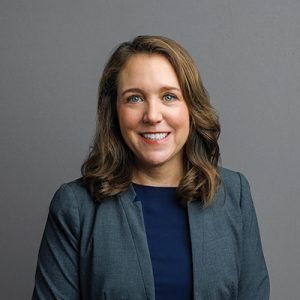Baker Tilly was proud to sponsor and attend this year’s American Bankers Association (ABA) conference. This year’s conference was well-represented by banks across the nation that ranged in size from small family-owned community banks to large public institutions. The conference focused mainly on the following:
- The November elections and the ABA’s efforts to influence candidates and current congressional members on pending legislation;
- The unpredictability of the economy; and
- Education for banks on the emerging digital asset market and related tools to provide customers the opportunity to integrate their external digital asset relationship with their current institution.
Politics and Pending Legislation
The mid-term election cycle allowed ABA political strategists to discuss pending and proposed legislation affecting banks. Several pieces of legislation threaten banks, including the “Durbin 2.0 Act” – a retailer-favored effort to remove the transactional fees associated with credit card transactions and thus remove credit card rewards for consumers. The original Durbin Amendment, passed in 2010 as part of the Dodd-Frank Act, began limiting the transaction fees charged to consumers using a debit card to an amount “reasonable and proportional” to the cost of the purchase.
Environmental, social and governmental (ESG) reporting requirements and limitations are also the subjects of pending legislation. Current bills circulating go as far as limiting the Securities and Exchange Commission (SEC) from any ESG oversight or enforcement on one extreme to attempts to make ESG government policy decisions through industry lending relationship restrictions on the other. The ABA is working on influencing legislators to ensure banks maintain autonomy in their lending decisions and keep compliance costs related to ESG reporting manageable. They fear that even applying fair or forced lending access restrictions to the largest banks in the U.S. will eventually trickle to the smallest institutions through “best practice” regulator creep.
The Uncertain Economy
Economic indicators and multiple Federal Reserve interest rate hikes, unheard of since the 1980s, are causing uncertainty in the lending and investment markets. Economists attending – including Comerica Bank’s Chief Economist Bill Adams – predict a slowing or halt to the interest rate increases in early to mid-2023. They discussed the Fed’s ability to “turn on a dime” if certain economic indicators turn negative, like if the unemployment rate increases. However, economic indicators are normally lagging, and the economy does not respond at the same pace as a Fed decision – creating an unpredictable future for banks.
While institutions remain well-capitalized and credit appears strong, the industry saw a decline in deposits in the second quarter of 2022. Half of community banks reported average asset terms of three years or more.
Eventually, the interest rate increases will broadly affect the commercial and consumer markets, although the increases are not expected to immediately impact the residential lending market since rates have been at historic lows for an unprecedented period. Other downside risks discussed included nonfinancial corporate borrowing and housing affordability, which could limit consumer spending.
The Digital Asset Era
Numerous conference sessions were designed to educate bank leaders on blockchain, encryption, digital assets – including cryptocurrency – and custodial market opportunities. Attendees were informed about the potential for a federal government digital asset – a Central Bank Digital Currency (CBDC). Vendors with platforms that tie to a bank’s main customer reporting systems and dashboards to allow customers to view and get funds back and forth to an existing trading platform were prevalent at the conference. Banks discussed the risks of adopting or avoiding these new platforms, including customer satisfaction, deposit run-off and regulatory risk.
On September 30, the ABA submitted public comments to the Basel Committee on Banking Supervision concerning prudent treatment of banks’ digital asset exposure. They listed three key principles that should guide supervisory and regulatory approaches to digital assets:
- the need to develop a broad understanding of key features in many digital assets;
- a willingness by regulatory and supervisory authorities to permit prudent innovation; and
- the benefits of conducting a significant share of the digital asset market through supervised financial institutions.
Other Insights
During the conference, FDIC Acting Chairman Martin Gruenberg spoke on the effects that more and more expansive storm damage will have on the credit market, banks, and lenders. The risks include a smaller insurance reimbursement market and potentially more loan default. He asked banks to consider climate-related financial risk policies – especially those banks with concentrated geographical risk. He did not expect the Fed’s direction to affect bank capital.
Several financial institutions have joined the ABA’s effort to stop bank scams and phishing. The main focus of the ABA platform – banksneveraskthat.com – is to educate people on how to avoid losing money to scammers imitating banks. The website covers important information about scam safety and phishing and includes several videos – and even a game – providing helpful tips and information.
Daniel D. Robb, President and CEO of Jonesburg State Bank in Jonesburg, Missouri, was introduced as the new Chair of the ABA. The ABA’s choice of a new leader from a small family-owned financial institution (less than $250M in assets ) shows the ABA’s re-focus on the community aspects of local banking. Other officer appointments included Chair-Elect Julieann M. Thurlow of Reading Cooperative Bank (Reading, MA), Vice Chair John C. Asbury, CEO of Atlantic Union Bancshares Corp. (Richmond, VA), and Treasurer Carissa Rodeheaver, Chairman President and CEO of First United Bank & Trust (Oakland, MD).
Tanya is a partner of the commercial services practice of Baker Tilly. She is a widely experienced tax professional in corporate, individual and flow-through taxation. She is also experienced in acquisition and merger diligence, accounting and tax planning. Tanya is an industry expert in financial services.







